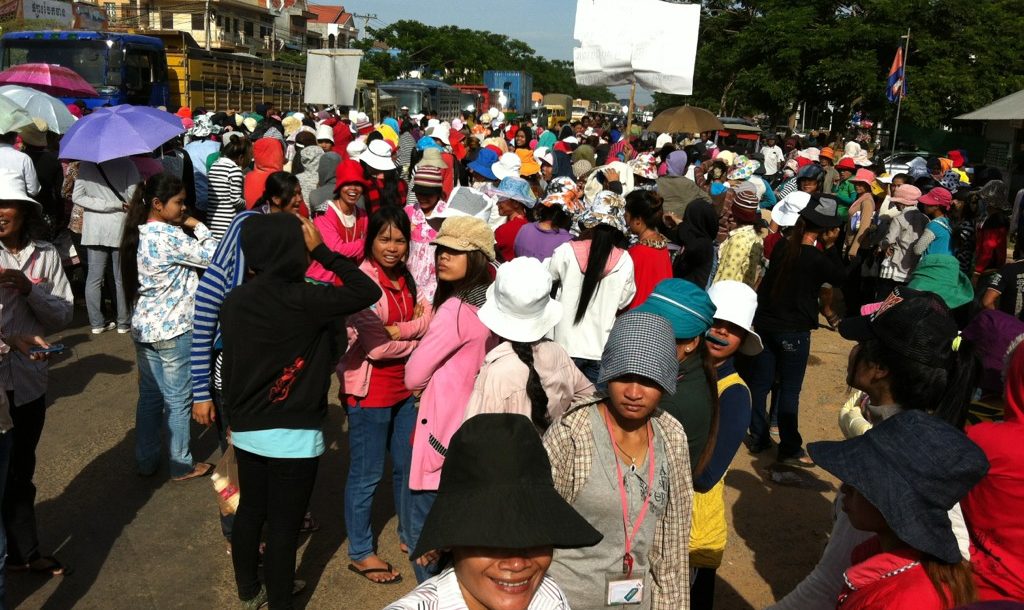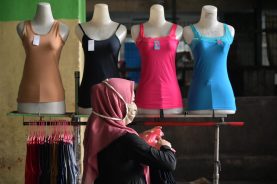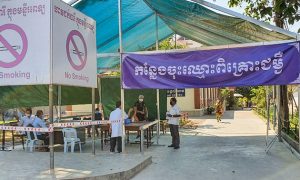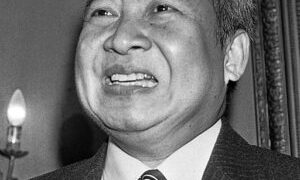Since the outbreak of the coronavirus, the pandemic has had a devastating effect on employment security of Cambodian workers. Garment factories temporarily closed several times due to lack of raw material from China or community transmission.
Many garment workers either lost their jobs or received a small amount of subsidy from the government. But to rub salt into the wound, garment employers regularly used COVID-19 as a pretext to target union members. The pandemic has been weaponised to get rid of trade unions.
The Business and Human Rights Centre conducted nine case studies on union busting in Cambodia, Myanmar, Bangladesh and India in March-July 2020. The result shows that trade unionists were disproportionately targeted by employers for dismissals.
However, a key feature of union busting in Cambodia is that employers extensively used the Fixed Duration Contracts (FDCs) to stir fears among workers. Factory-level union leaders could be easily dismissed if they formed a union or spoke out for workers. Ordinary workers dare not go against management’s instruction on overtime work.
The Cambodian labour law stipulates two types of employment contracts, Fixed Duration Contracts (FDCs) and Undetermined Duration Contracts (UDCs). When the labour law was introduced in 1997, UDCs were the norm. But the slight change in the labour law amendment in 2009 has far-reaching impacts in the burgeoning manufacturing sector in Cambodia.
The Cambodian government replaced the wording “the renewal” with “each renewal” in the article 67 of the labour law, so that a FDC “can be renewed one or more times, as long as each renewal does not surpass the maximum duration of two years.”
The government believed that employment flexibility could increase the competitive edge of the garment industry in the country. As a consequence, the amendment emboldened employers to put workers under FDCs indefinitely.
Due to widespread criticism from Cambodian trade unions and labour organizations, the government issued a directive in July 2019 to clarify the terms of FDCs. The directive stated that an initial FDC contract shall not surpass two years, and the FDC can be renewed as long as the total duration of the renewals does not surpass two years, meaning that an employee can be put on a FDC for a maximum of four years. After that the employer can either switch the employment contract to UDC or terminate the existing contract.
The triple work burden of Indonesia’s women unionists
The delicate balancing of labour across the home, workplace and union is no small burden.
However, in practice, many employers violated the laws, repeatedly putting garment workers on FDCs after their contract ends. Ordinary workers choose not to challenge the practice to secure jobs and income. If a worker challenges the practice or forms a trade union, their contract will not be renewed when the FDC ends. No reason is required for discontinuing a FDC under the Cambodian labour law, unless a worker can prove it is an act of anti-union discrimination, which is not an easy task.
This phenomenon shows Cambodian workers face the constant threat of employment insecurity, which denies workers a stable and decent living. It is important to note that as a state that ratified the International Covenant on Economic, Social and Cultural Rights (ICESCR), the Cambodian government is obliged to comply with the convention, including article 7 that requires a state party to recognise the right to enjoy just and favourable conditions of work.
The CESCR’s general comment No. 23 clearly states that the increase of short-term contracts and non-standard forms of employment has led to insufficient protection of just and favourable conditions of work. The lack of protection negatively impacts other rights such as the right to the highest attainable standard of health and an adequate standard of living.
Employment insecurity in Cambodia should make us rethink the notion of basic security for all proposed by economist Guy Standing, who argued that a worker needs a certain level of self-control and basic security in their occupation to realise the concept of human security.
Whether basic security or human security, this requires the government to play a significant role to regulate market forces in the name of competition or efficiency. Promoting employment is a noble intention, but it should not be a race to the bottom. If labour is not a commodity, freedom from fear and freedom from want ought to be the normal situation.
Moving forward, Cambodian the government should further amend the labour law to limit the scope for application of FDCs and reduce the maximum duration of the contracts. The Ministry of Labour and Vocational Training must monitor the use of FDCs and UDCs in each manufacturing facility and conduct regular labour inspections to ensure compliance with the labour law.
International buyers should require local suppliers to make data on FDCs and UDCs available and include it as an assessment criteria in their purchasing practices. This measure will deter widespread abuse of FDCs.
Of course, nothing will change without the pressure of trade unions and civil society organisations. A unified labour movement will be a formidable force that every government cannot ignore.
 Facebook
Facebook  Twitter
Twitter  Soundcloud
Soundcloud  Youtube
Youtube  Rss
Rss 



